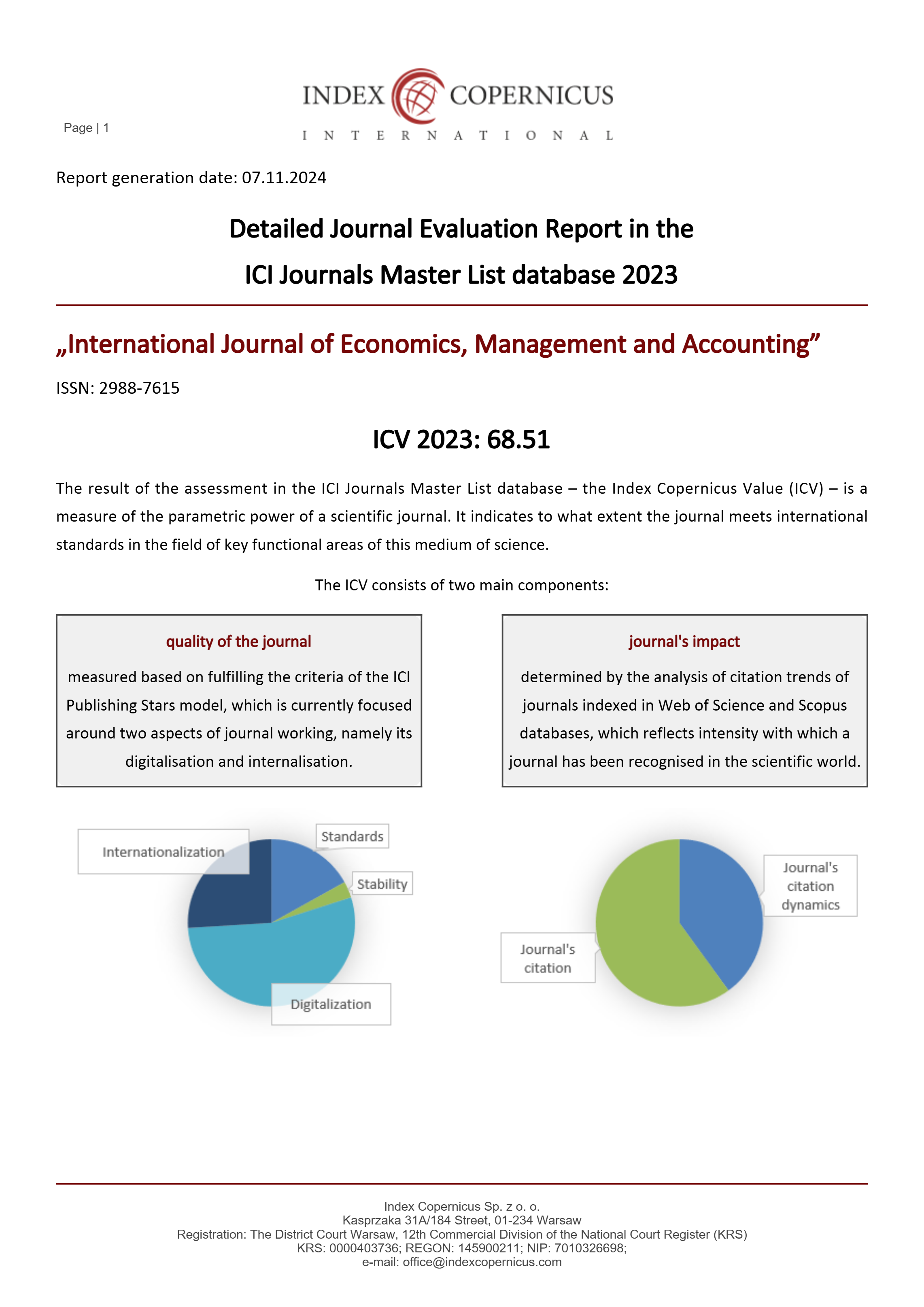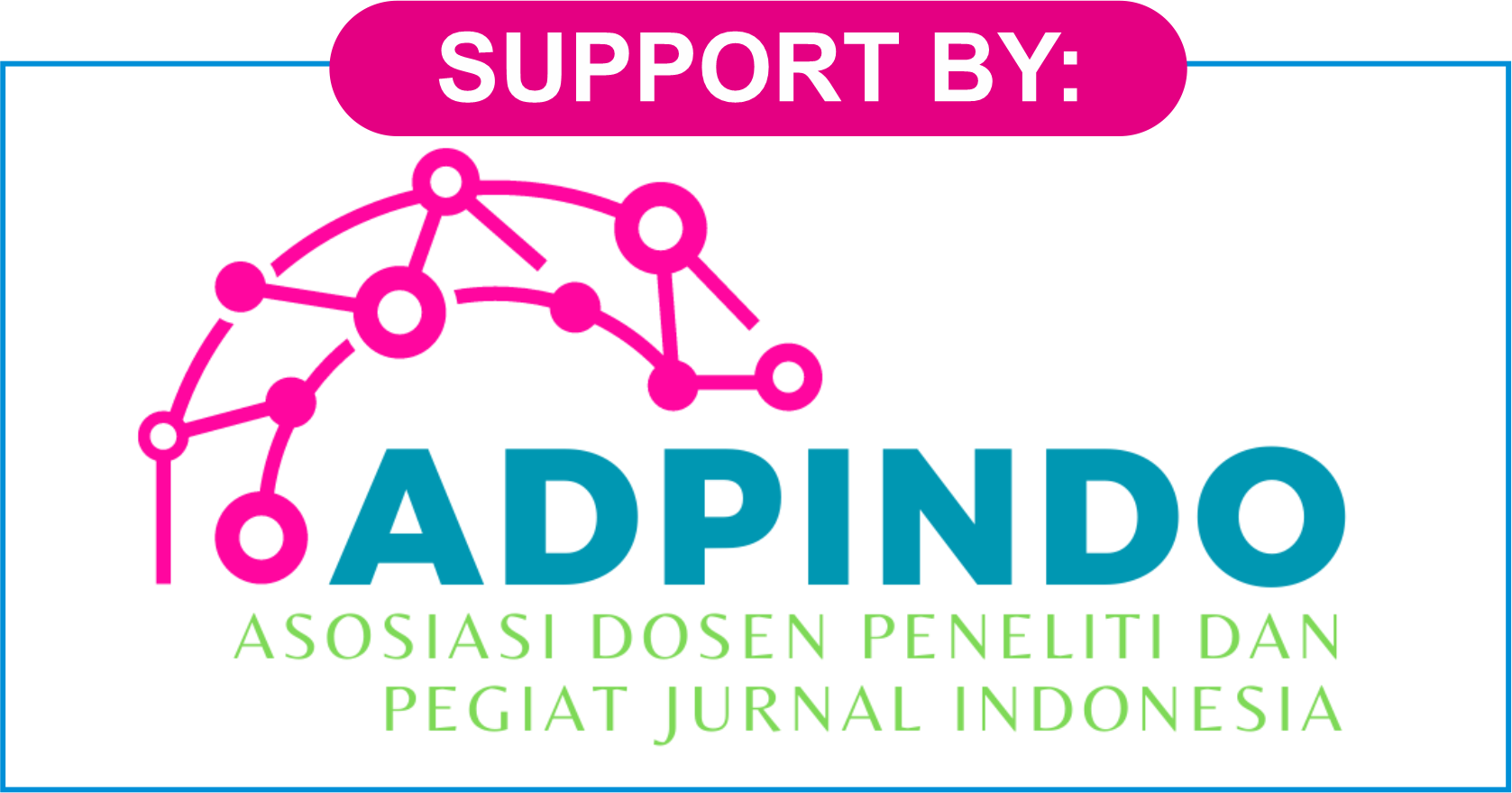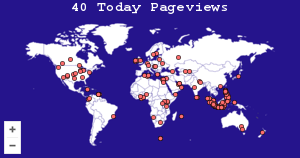Multidimensional Poverty Analysis on the Islands of Java–Bali 2014-2018
DOI:
https://doi.org/10.47353/ijema.v2i1.139Keywords:
multidimensional poverty, education, nutrients, electricity accessAbstract
Poverty continues to be an issue faced by all nations, especially in developing countries. Poverty refers to a condition where an individual or a group of people lacks the ability to meet the minimum standard of living considered appropriate for a decent life. Measuring poverty solely through monetary dimensions is insufficient; hence, a multidimensional approach to measuring poverty is crucial. During the period from 2014 to 2018, the highest reduction in the Multidimensional Poverty Index occurred in 2014, with a percentage decrease of 18.4%. This study uses secondary data and panel data analysis on 7 provinces in Java and Bali from 2014 to 2018 to examine the impact of the Multidimensional Poverty Index in Java and Bali. The study shows that 1) Gross Regional Domestic Product has a significant negative effect on the Multidimensional Poverty Index in Java and Bali. 2) The prevalence of malnutrition in toddlers does not significantly affect the Multidimensional Poverty Index in Java and Bali. 3) The average length of schooling has a significant negative effect on the Multidimensional Poverty Index in Java and Bali. 4) The source of electricity has a significant positive effect on the Multidimensional Poverty Index in Java and Bali.
Downloads
References
Case, K. E., & Fair, R. C. (2007). Prinsip-prinsip Ekonomi (8 ed.). Pearson Prentice Hall
Ferezagia, D. V. (2018). Jurnal Sosial Humaniora Terapan Analisis Tingkat Kemiskinan di Indonesia Jurnal Sosial Humaniora Terapan Analisis Tingkat Kemiskinan di Indonesia. 1(1)
Ghozali, I., & Ratmono, D. (2017). Analisis Multivariat dan Ekonometrika. In Universitas Diponegoro.
Gujarati, Damodar, 2003, Ekonometri Dasar. Terjemahan: Sumarno Zain, Jakarta: Erlangga.
Kuncoro, M. (2011). Metode Kuantitatif: Teori dan Aplikasi untuk Bisnis & Ekonomi. In UPP STIM YKPN. UPP STIM YKPN.
Larasati Prayoga, M., Muchtolifah, & Sishadiyanti. (2021). FAKTOR KEMISKINAN DI KABUPATEN SIDOARJO. 3(2), 135–143
Nazir, Moh. Ph. D. 2009. Metode Penelitian. Jakarta: Ghalia Indonesia
Pratama, Y. C. (2015). Analisis Faktor-Faktor Yang Mempengaruhi Kemiskinan di Indonesia. Esensi, 4(2), 45–53. https://doi.org/10.15408/ess.v4i2.1966
Syaidi, R. (2024). The Legal Issues in Implementing Constitutional Court Decision Number 49/PUU-IX/2011 (The Polemic of the Abolition of Law 7/2020 Article 59 Paragraph 2). International Journal of Islamic Education, Research and Multiculturalism (IJIERM), 6(1), 179-192.
Syaidi, R. (2024). Independence of the General Election Commission and Election Supervisory Board for Democratic Elections. Jurnal Akta, 11(2), 303-313. doi:http://dx.doi.org/10.30659/akta.v11i2.36375
Todaro, M. P. dan S. S. (2006). Pembangunan Ekonomi. Jilid I Edisi Kesembilan. Erlangga.
Torrisi, B. 2009, The influence of regional autonomist government on the teritory environmental and economics performances, Journal of Enviromental Economics Volume II.
Downloads
Published
How to Cite
Issue
Section
License
Copyright (c) 2024 Fera Citra Mursalita, Zulfa Emalia

This work is licensed under a Creative Commons Attribution 4.0 International License.











